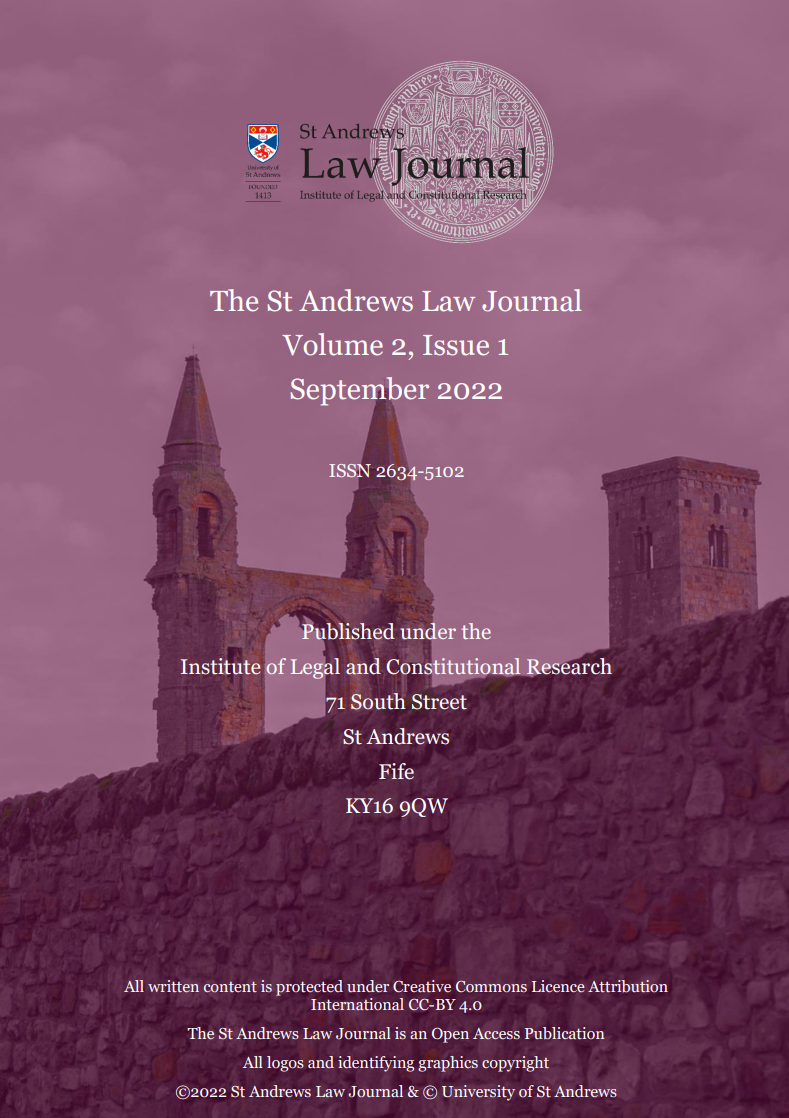Understanding the Relationship between Canadian Law and Settler-Colonial Land Ontologies for Contemporary Decolonisation Movements
Main Article Content
Abstract
This article uses a decolonial framework to reveal the power of legality in the settler-colonial states’ legitimation of ontological occupation. Using the 1997 Delgamuukw decision and the Coastal GasLink Pipeline as central case studies, this paper reveals that the historical interrelationship between settler-colonial land ontologies and Canadian law during the process of colonisation has influenced the Canadian court system in ways that limit possibilities for decolonisation, and recognition of Indigenous sovereignty.
Article Details
Section
Articles

This work is licensed under a Creative Commons Attribution 4.0 International License.
Authors who publish with this journal agree to the following terms:
- Authors retain copyright and grant the journal right of first publication with the work simultaneously licensed under a Creative Commons Attribution License that allows others to share the work with an acknowledgement of the work's authorship and initial publication in this journal.
- Authors are able to enter into separate, additional contractual arrangements for the non-exclusive distribution of the journal's published version of the work (e.g., post it to an institutional repository or publish it in a book), with an acknowledgement of its initial publication in this journal.
- Authors are permitted and encouraged to post their work online (e.g., in institutional repositories or on their website) prior to and during the submission process, as it can lead to productive exchanges, as well as earlier and greater citation of published work (See The Effect of Open Access).

